MISP (Malware Information Sharing Platform & Threat Sharing) is an open source software solution for collecting, storing, distributing and sharing cyber security indicators and threats and analyzing cyber security incidents.
MISP is designed by and for incident analysts, security and IT professionals or reverse engineer to support their day-to-day operations to effectively share structured information.
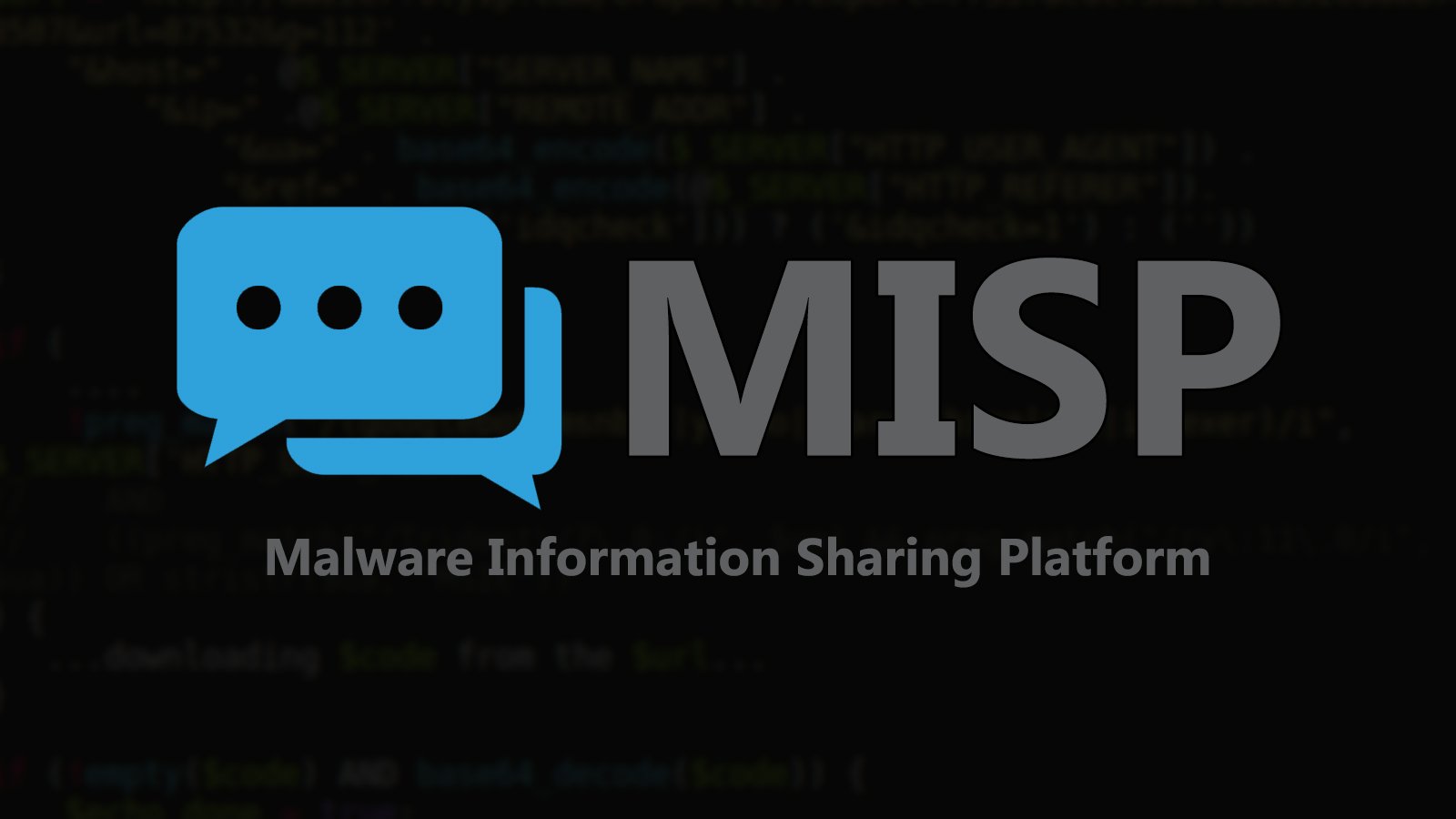
The goal of MISP is to promote the exchange of structured information within the security community. MISP provides functions to support the exchange of information, but also the consumption of information from the Network Intrusion Detection System (NIDS), LIDS and recording analysis tools, SIEMs.
The exchange of information leads to faster detection of targeted attacks and improves the detection ratio while reducing false threats. We also avoid reversing such malware as we know very quickly that other groups or organizations have already analyzed a particular malware.
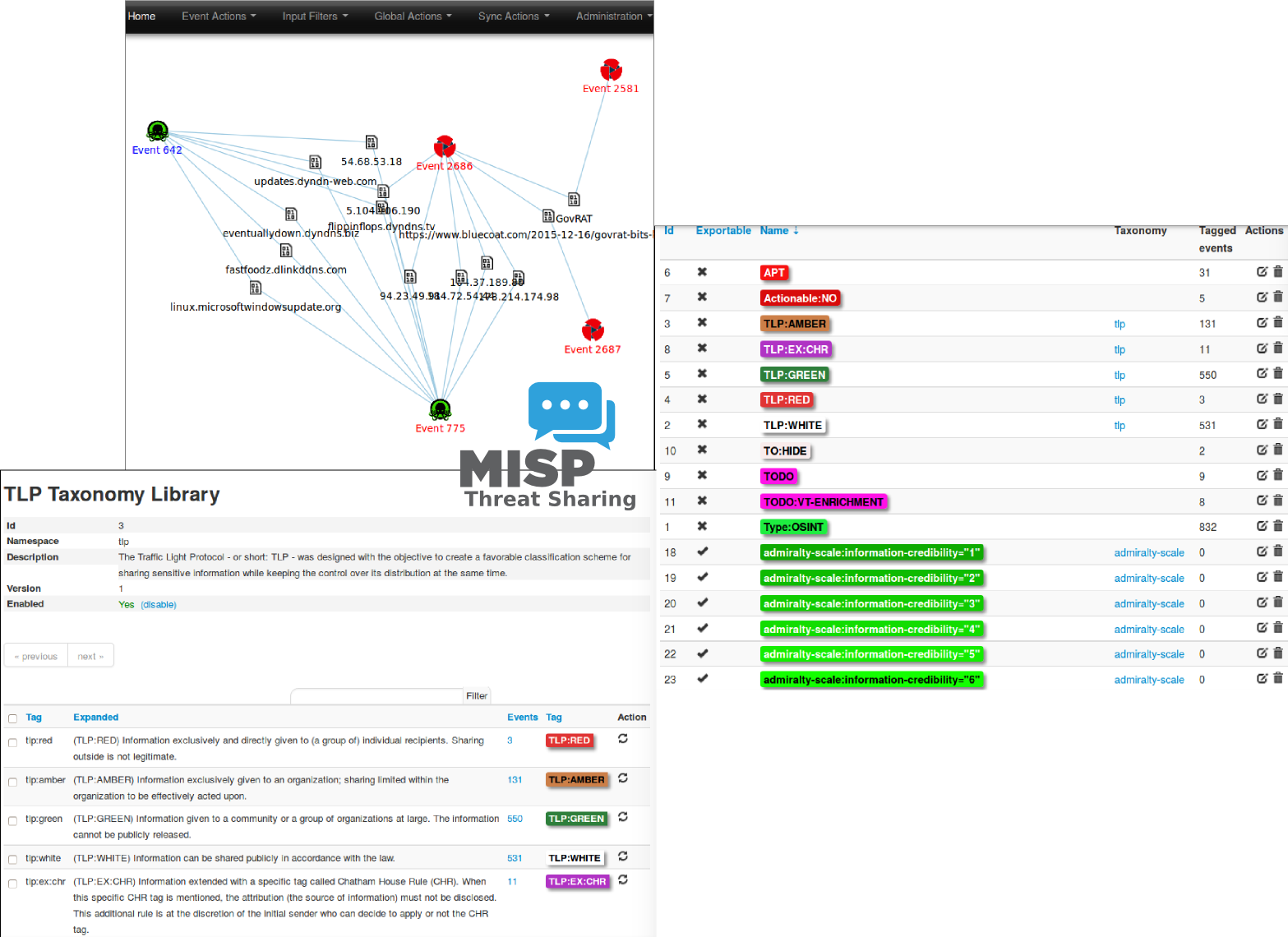
Specifications
- efficient IOC and indicators
- correlation
- flexible data model
- sharing functionality
- intuitive user-interface
- storing data
- export
- import
- free text import
- Collaborate
- data-sharing
- delegating of sharing
- API
- Adjustable taxonomy
- Intelligence vocabularies
- Expansion modules in Python
- Sighting support
- STIX support
- Integrated encryption and signing of the notifications
Application snapshots
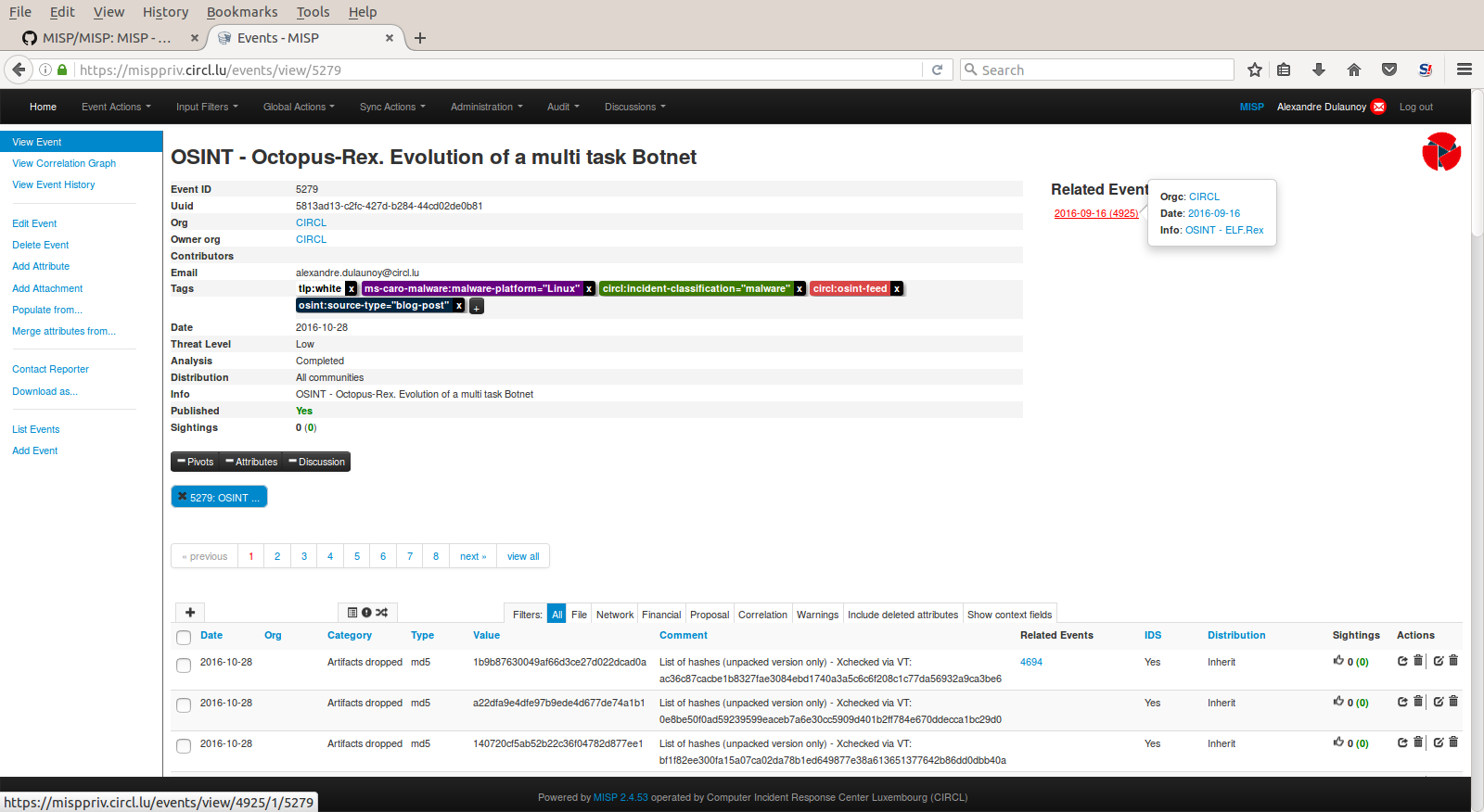
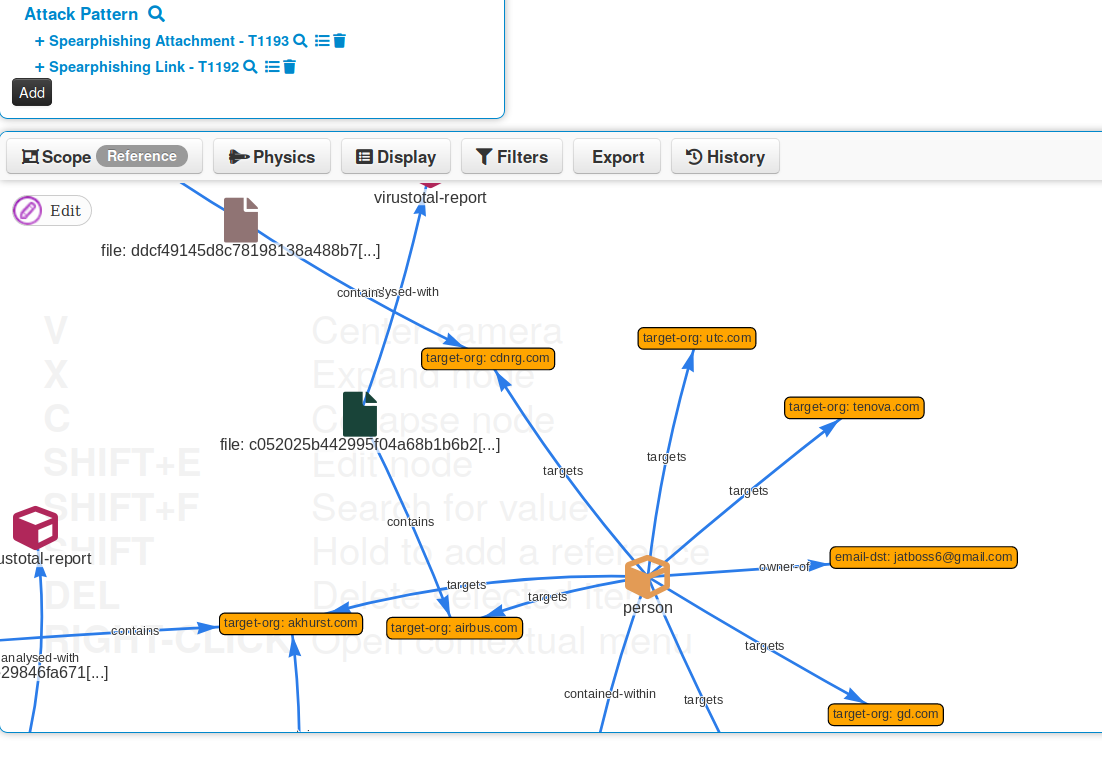

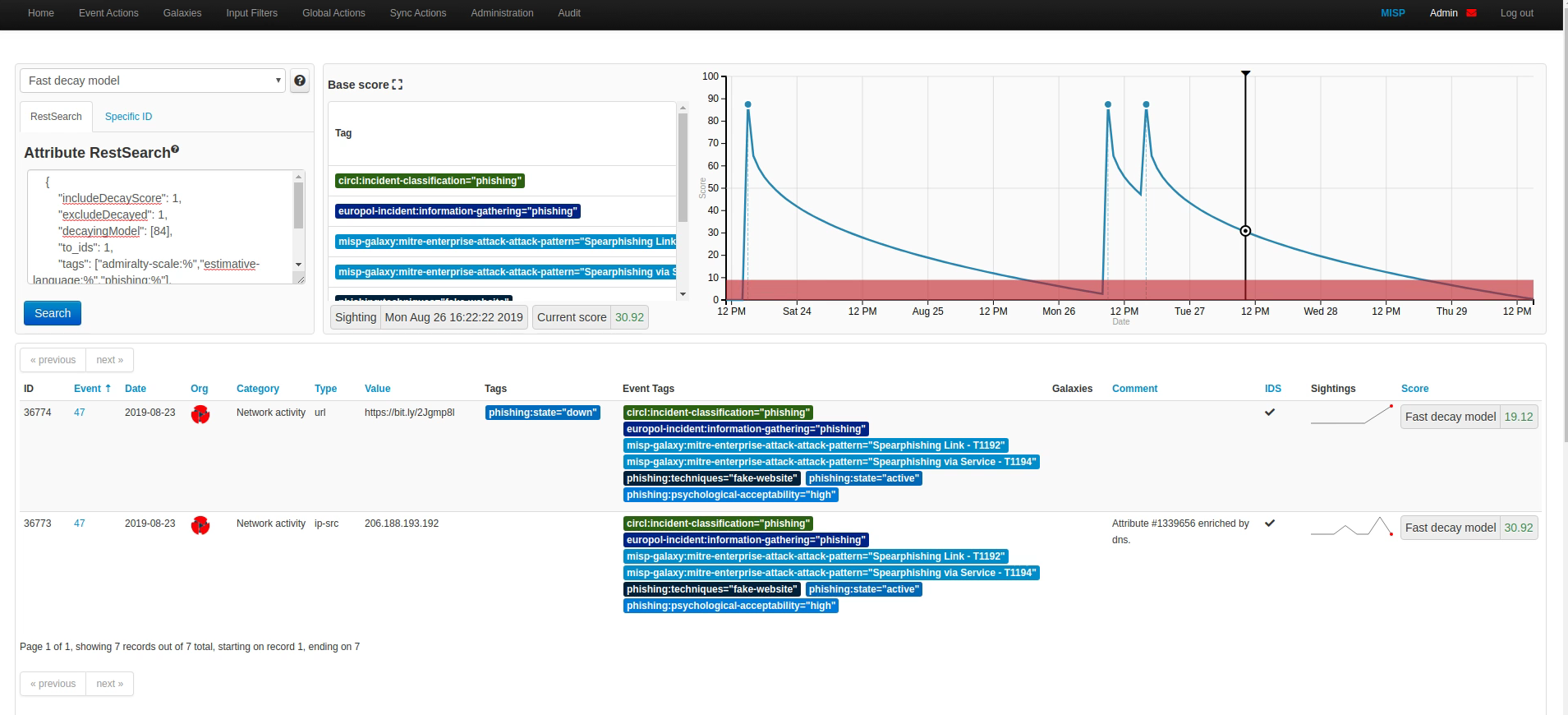
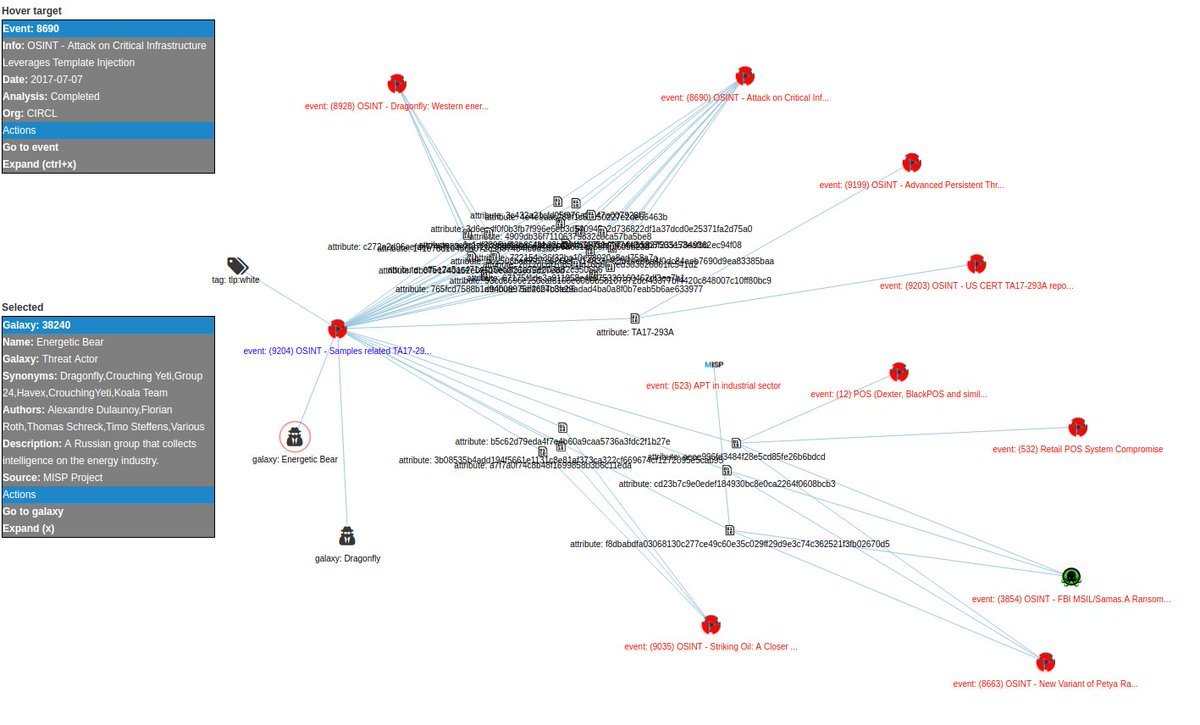
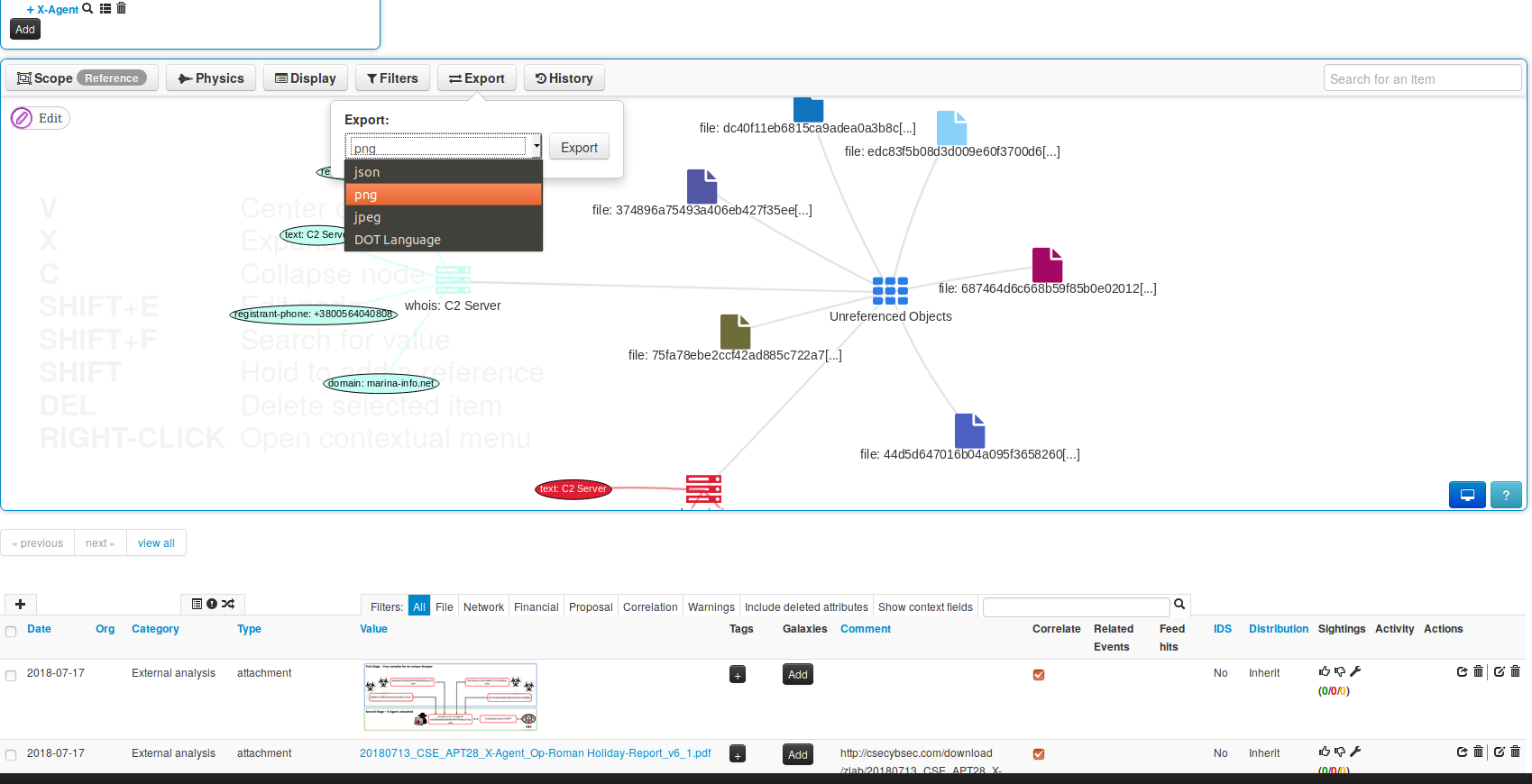
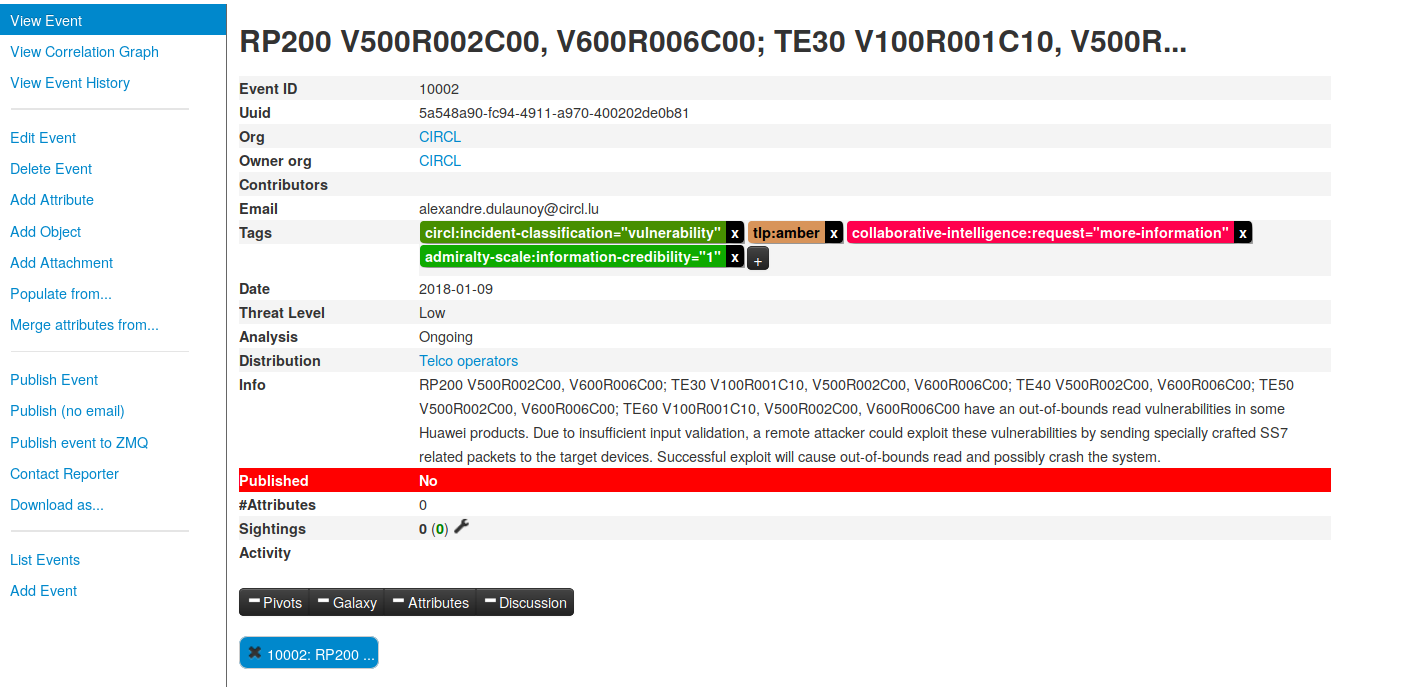
You can download the program from here.
Instructions on installation of the program you will find here.
Instructions for using the program can be found here.





